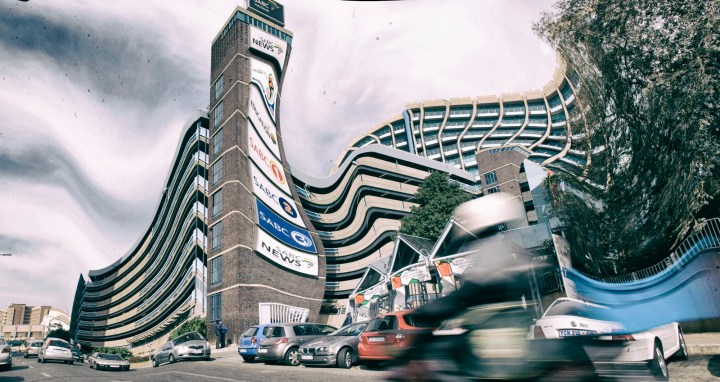OP-ED
Interview process for new SABC board ‘insane, weak and inadequate’

We are in the final stages of trying to get a quorate board for the SABC in the run-up to the elections. We (Media Monitoring Africa and SOS: Support Public Broadcasting Coalition) participated in monitoring the process as it unfolded and people should be duly concerned.
South Africans should be concerned not only for the quality and calibre of many of the candidates for the SABC board but of the commitment of the Parliamentary Committee on Communications to get the job done. As we know, it has been a long journey to get to this point where MMA and SOS have had to repeatedly send lawyers’ letters to ensure that the committee does its basic job. After months of parliamentary decisions oscillating between promises, processes, suggested interview dates and empty announcements, the interview process finally began in parliament on 5 March 2019.
We would like to share a few reflections of how insane, weak and inadequate the process was, but before we share that, it is useful to consider what is legally required for the appointment of board members.
According to Section 13 of the Broadcasting act, non-executive appointments must be made through an open and transparent process that begins with a call for the public to make nominations to parliament, specifically, the Portfolio Committee on Communications, who themselves are considered a body of public representatives. Parliament receives the nominations and is responsible for shortlisting the candidates, ensuring that those who make it onto the list, in one way or another, meet the qualification requirements set out in the broadcasting act. The Portfolio Committee on Communications then has to interview all the qualifying candidates on the shortlist and make recommendations to the National Assembly. The President must appoint the individuals on the advice of the National Assembly and appoint a Chairperson as well if there isn’t one in place already.
The broadcasting act requires that the members of the SABC board, collectively, be:
(4)(a) be persons who are suited to serve on the Board by virtue of their qualifications, expertise and experience in the fields of broadcasting policy and technology, broadcasting regulation, media law, frequency planning, business practice and finance, marketing, journalism, entertainment and education, social and labour issues; (b) be persons who are committed to fairness, freedom of expression, the right of the public to be informed, and openness and accountability on the part of those holding public office; (c) represent a broad cross-section of the population of the Republic; (d) be persons who are committed to the objects and principles as enunciated in the Charter of the Corporation.
Understanding some of the requirements of who should serve on the board, here are some of our observations of the process that unfolded in Parliament:
- The process began with an inquorate meeting and delayed starting times as several MPs were allegedly tied up in other meetings. After day three of the shortlisted candidates being interviewed for the SABC Board, we are yet again in a position of having very little confidence in our parliamentary processes. The three-day ordeal was marred with challenges of drawn-out interviews, MPs asking meandering questions and public confusion around the criteria used to shortlist the candidates.
- Once we were in full swing, there were further strange moments. This story, for example, is a perfect example of one of these: In the final moments of the last interview of the third day, an ANC MP insisted that the candidate had not answered her fellow ANC colleague’s bizarre question about service delivery and the public broadcaster’s role in telling “the good story…”. She then proceeded to use the opportunity to discuss the ruling party’s great achievements, comparing the ANC to the Blue Crane. “Intaka yeSizwe” (the national bird), she said in isiXhosa, “is a great, majestic and wise bird, just like her party, the ANC” that she felt had been successful at things like service delivery. At first, there were awkward glances across the room which became muted displays of irritation and eventually turned into giggles, and finally, full-on laughter. The member meandered on in English and isiXhosa while the public listened, mind-boggled and wondering how we had survived this last term if this was the calibre of “honourable members” tasked with leading our country.
- In light of the tall order set out above, it is no wonder the public was often left wondering how some candidates had made it onto the shortlist, or even worse, how some MPs were engaging with candidates as if they were on the election campaign trail instead of focusing on making sure that the SABC board will have the right combination of skills, qualifications, and expertise from a group of people with proven integrity.
Indeed, what we saw over the three days was a borderline spectacle. We were whiplashed between highly-qualified, respected professionals with impressive track records to not-so-independent candidates with downright questionable credentials and in some instances, the occasional red herring that would have industry insiders shouting in protest should they be appointed.
We have to acknowledge that the public broadcaster is, without a doubt, in a far better position (regarding editorial independence) than it was two years ago. This is why we have to continue fighting for independence and ensuring that the SABC is able to report without fear or favour during this election period. However, without a quorate board, without an independent quorate board, we will simply see the institution regressing into the politically controlled mouthpiece we all fear, or worse, we risk not having a public broadcaster at all. DM
Thandi Smith is Head of Policy Programme, Media Monitoring Africa and Duduetsang Makuse is national coordinator of the SOS Coalition.


















 Become an Insider
Become an Insider